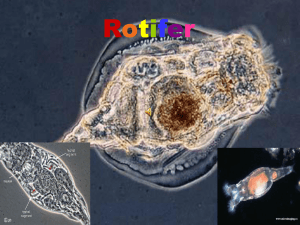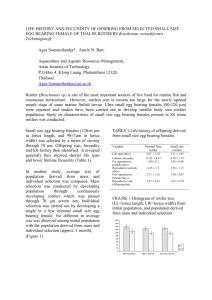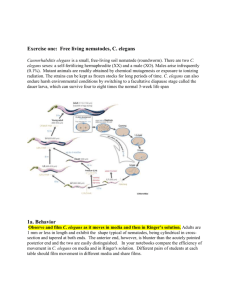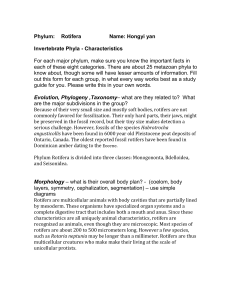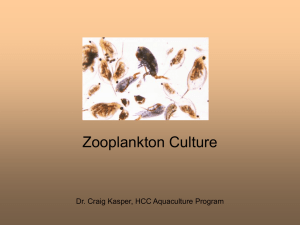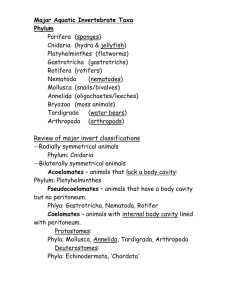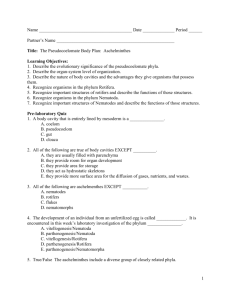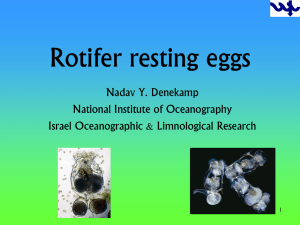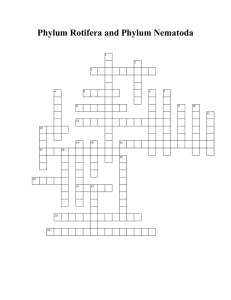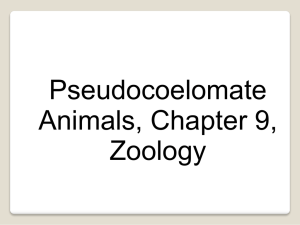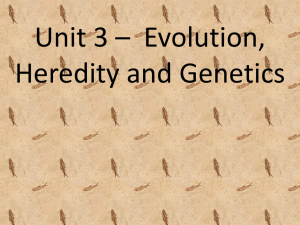Rotifers: Characteristics, Habitat, and Reproduction
advertisement
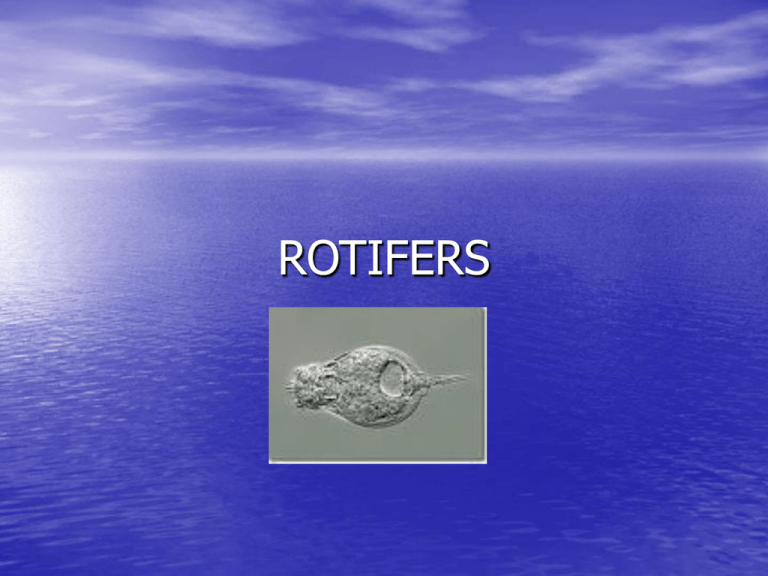
ROTIFERS characteristics • Rotifers are small animals. • Their outer coat looks like • • • • clear glass Sometimes the glassy outer coat are covered with spines or spikes They have a ring of hair at their head end called cilia which beat in a wave making currents to bring in food particles Organs made up of brain, stomach and intestines They belong to the ‘phylum rotifera’ HABITAT • They live in freshwater • • some of the species live in freshwater Some are attached to plant stems while others swim through the water They live in moist sands along the shore and in the gravel of aquarium tanks FEEDING • They eat algae debris and other protists, bacteria and even other rotifers REPRODUCTION • Some species of rotifers only sexual reproduction, some only use asexual reproduction and some have both sexual and asexual phasp • In species that use only asexual • • • reproduction are all females she produces the egg that develop into new embryos without fertilization The daughters are genetically identical to the mother Rotifers that use only sexual reproduction the males store sperm in a bag that they transfer to females during mating fertilization takes place inside the females Later the female attach the eggs to crustaceans called sea fleas where they stay until the young hatch Interesting facts • One rotifer is a parasite • It lives inside an algae called the • • • • • volvox The volvox is a colony of algae sells that live together in a sphere The parasite rotifer lives together in a sphere It munches away on the inside of the colony and lay its eggs The damage slowly destroys the perfect globe shape of the volvex When the rotifer has eaten enough of its host it escapes and swims of to find another victim INTERESTING FACTS • The name rotifer came • from the Latin word rota meaning wheel and ferre meaning ‘to carry’ When these animals are swimming or feeding the beating of their hair like fibers give the illusion that the animal carries two small rotating wheels
